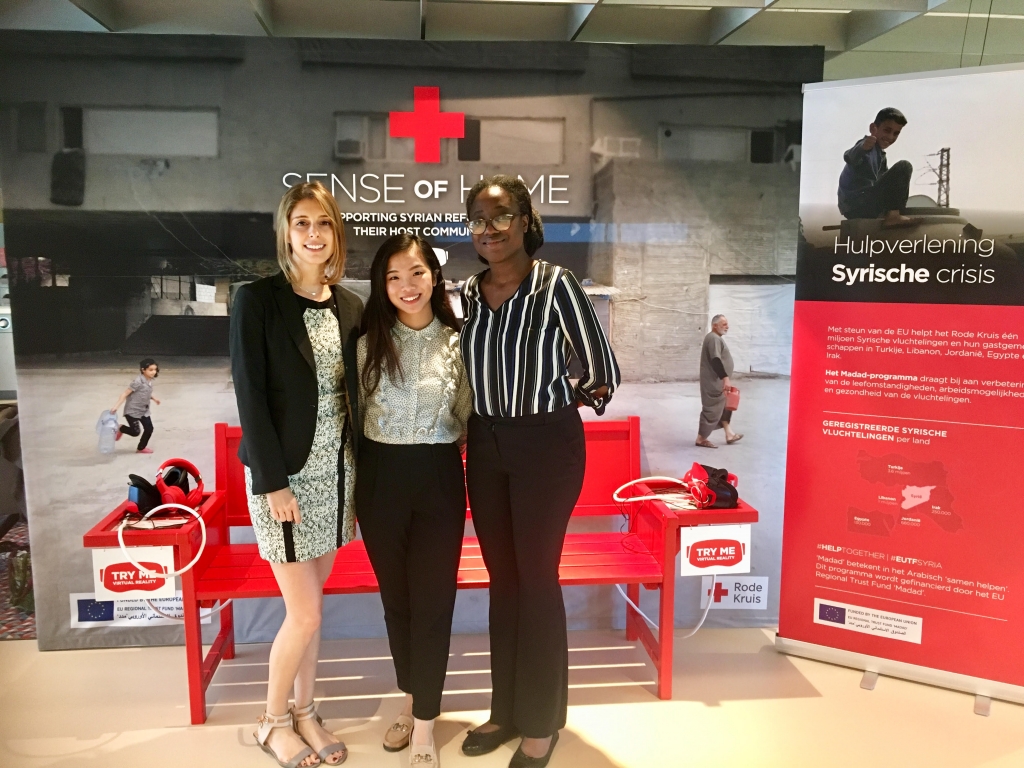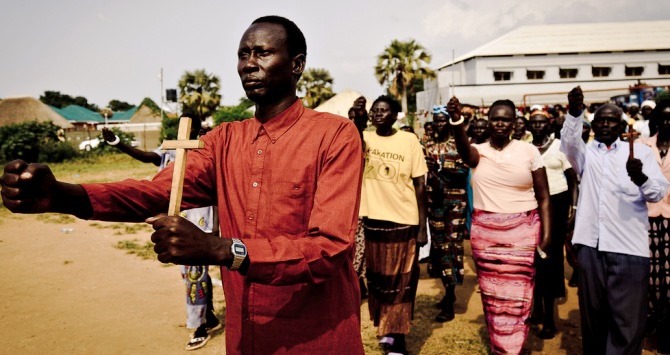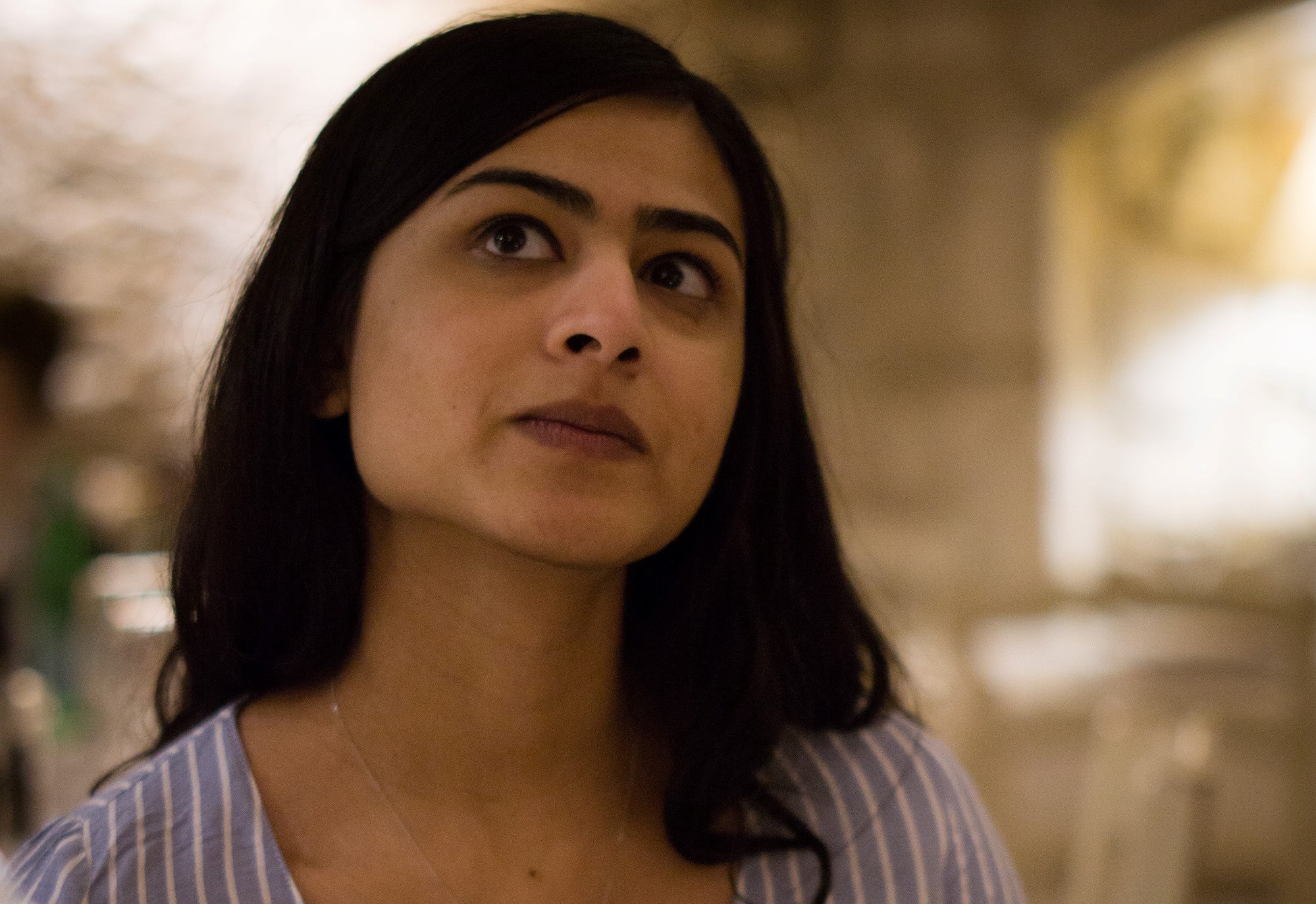The MSc International Development and Humanitarian Emergencies consultancy group for Partners for Resilience (PfR) cultivated an enriching partnership that led to a presentation to PfR staff at The Hague on the student’s report entitled Building Resilience with Private Sector Engagement: Enabling Socially and Environmentally responsible Investments in Disaster-Prone Communities. Olivia Singer, Yudan Chen, Tamilore Odunaiya share their experiences.

Contributing to current programming in disaster-prone developing countries, a team of three students from the London School of Economics (LSE) conducted a 6 to 7-month consultancy project, commissioned by Partners for Resilience (PfR) and titled Building Resilience with Private Sector Engagement: Enabling Socially and Environmentally responsible Investments in Disaster-Prone Communities. The team has recently returned from The Hague where they presented their research to PfR staff, including the directors of the Red Cross, Red Cross Climate Centre, CARE, Cordaid, as well as Policy Officers and Programme Officers from the mentioned organizations. Upon reflecting on the year as master’s students of International Development, the consultancy group decided to write this blog to share a bit about their experiences, the challenges, but also opportunities and lessons learned, while working as consultants throughout the academic year.
We were excited when we received our assignment to work with PfR on the topic of climate “resilience” and engaging the private sector. In other words, how PfR can continue to empower communities to manage, recover and adapt to the changing environment (due to climate change and natural hazards), while also ensuring that the participation of business may benefit surrounding communities. At the time, we were ready to take on the interdisciplinary, timely, and important topic, but were unaware of its enormity and complexities as it required understanding both business incentives and socio-ecological concepts like resilience and adaptation.
We were drawn to the topic for different reasons due to our different academic interests, work and research experiences, and different cultural backgrounds. However, although our different experiences and personalities created opportunities to discuss approaches, arguments, perspectives, pulling together three minds for writing a single cohesive report posed a new challenge and learning experience.
Though both are based on solid research analysis, the consultancy project was a new experience in comparison to the academic research one may normally conduct for an essay assignment or a dissertation. For example, when we were faced with decisions, such as how to analyse the data or present our findings, we had to constantly reminded ourselves the importance of understanding our client’s concerns and objectives. Our report had to focus on problem-solving. Through interviews with different stakeholders like private enterprise, field staff, research institutes, we developed comparisons of different investments in order to present the challenges and highlight possible opportunities to working with different stakeholders.
After completing the project, culminating in a presentation in front of both the client and LSE academic staff, our group was invited to share our research with high-level staff of PfR at their office in The Hague, Netherlands. This time, since our audience and our objective had changed, we knew we had to adjust our focus since our presentation would not only be reviewed for its academic quality, but more so for its added value—demonstrated through actionable recommendations and specific insights to programming. Therefore, we further improved our work by focusing on the link between empirical evidence and workable suggestions based on our client’s objectives.
Our trip to The Hague and the presentation in front of very experienced humanitarian-development professionals, was a true test of our research and findings, but also our professionalism. We felt very honoured to present and receive immediate feedback from those who worked directly on the issues we addressed in our research. After the Q&A, program managers approached us and asked if we could share parts of our research that could be useful for program development and advocacy. It was wonderful to hear that our hard work would possibly inform approaches or decisions, and facilitate dialogues between humanitarians and the private sector.
The consultancy project was a significant and influential component of our entire master’s degree, and we all found that it provided us a unique opportunity to apply our knowledge from our courses and our academic skills in a practical manner. Although it was a challenge to juggle the project, along with regular course work, and the dissertation, all three of us are grateful that we chose to take this module and participate in the project. We learned a great deal about consultancy work, including project management skills, research best-practices, public speaking and more. Also, we learned a lot about group work and how we, as individuals, perform in a group. The challenges of group work—including debates over the case material, writing styles, and work habits—turned out to be the most didactic aspect of the course and overall experience. What we learned by working on this project will serve us in our many future group projects to come.
Olivia Singer and Yudan (Sophia) Chen, two master students in the Development Studies programme and Tamilore Odunaiya, a student of the African Development programme, participated in the “International Development and Humanitarian Consultancy Project” for the academic year 2017 to 2018. After their presentation in June in The Hague, they will continue conversations with PfR staff to clarify important elements of the research that may be used to improve current programming and assist humanitarian advocacy.
The views expressed in this post are those of the author and in no way reflect those of the International Development LSE blog or the London School of Economics and Political Science.






Very interesting! Is the research (or its results) online? Also, have they heard of UNOCHA’s Centre for Humanitarian Data? It focuses on both the non-profit, public sector and the private sector using and sharing data for humanitarian purposes through the Humanitarian Data Exchange (HDX). I’m surprised UNOCHA was not invited to the presentation mentioned here!